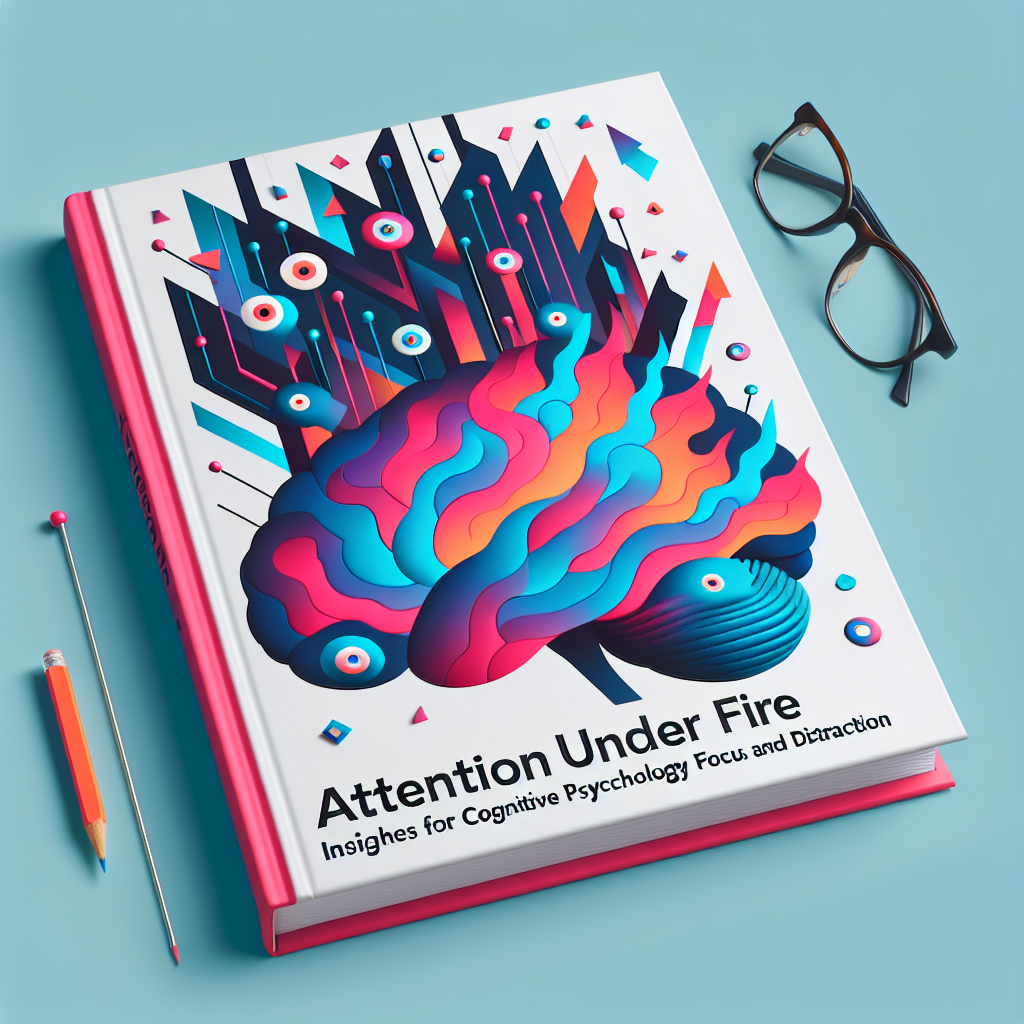Introduction
In today’s fast-paced world, where distractions are just a scroll or a notification away, mastering focus is more crucial than ever. The digital age bombards us with information, demanding our attention – often leaving us feeling overwhelmed. Have you ever found yourself juggling multiple tasks, only to realize you haven’t accomplished anything? If so, you’re not alone. The challenge begins with understanding our cognitive processes. This article, "Attention Under Fire: Insights from Cognitive Psychology on Focus and Distraction," dives deep into the mechanics of attention, offering proven strategies to reclaim your focus amid chaos.
Understanding Attention: The Cognitive Psychology Perspective
What is Attention?
Attention is the cognitive process that allows us to concentrate on specific stimuli while filtering out irrelevant information. It plays a foundational role in cognitive psychology, influencing memory, perception, and decision-making. Cognitive psychologists categorize attention into different types: selective attention, sustained attention, divided attention, and alternating attention. Each type serves a unique purpose and helps us navigate our environment effectively.
Table 1: Types of Attention
| Type of Attention | Definition |
|---|---|
| Selective Attention | Focusing on one stimulus while ignoring others. |
| Sustained Attention | Maintaining focus over an extended period. |
| Divided Attention | Managing multiple tasks or stimuli simultaneously. |
| Alternating Attention | Switching focus between different tasks or stimuli. |
Why Do We Get Distracted?
Distractions come in two forms: external (environmental cues, notifications) and internal (thoughts and mind-wandering). Cognitive psychology explains that our brains are wired to seek novelty, which can heighten susceptibility to distraction. In an era where external stimuli constantly compete for our attention, understanding how these distractions impact our cognitive functions is vital.
The Science of Focus: How to Enhance Attention
Cognitive Load Theory
Cognitive Load Theory suggests that our working memory has limited capacity. When tasks exceed this capacity, performance suffers. Understanding this principle can help develop effective strategies for improving focus under pressure.
Case Study: The Effects of Cognitive Load in Academic Settings
A study by Sweller (1988) demonstrated that students struggling with complex problems performed better when tasks were simplified. By breaking down the information into manageable chunks (known as “scaffolding”), students could maintain focus and improve retention.
The Role of Time Management
Effective time management is crucial for maintaining attention. Techniques such as the Pomodoro Technique—working for 25 minutes, then taking a 5-minute break—can enhance focus by creating structured working periods.
Analysis: The Pomodoro Technique
In a workplace trial, employees who employed the Pomodoro Technique reported a 25% increase in productivity. By respecting cognitive limits, they minimized distractions and maximized their output—a key takeaway from "Attention Under Fire: Insights from Cognitive Psychology on Focus and Distraction."
Real-World Applications of Attention Management
Mindfulness and Focus
Incorporating mindfulness practices enhances concentration. Mindfulness encourages individuals to become aware of their thoughts and feelings without judgment, increasing emotional regulation and decreasing susceptibility to distractions.
Case Study: Mindfulness in a Corporate Environment
A program at a major tech company introduced mindfulness training. Employees reported enhanced focus and reduced stress, with productivity increasing by 15%. This illustrates how mindfulness—rooted in cognitive psychology—can mitigate the challenges presented by distraction.
Strategies for Improved Focus
Creating an Optimal Environment
- Minimize External Distractions: Use noise-canceling headphones and maintain a clutter-free workspace.
- Digital Detox: Limit notifications and social media access during work hours to enhance selective attention.
Implementing Effective Breaks
Taking regular, structured breaks significantly boosts productivity and focus. The brain needs downtime to recharge—incorporating short breaks allows for mental renewal.
Understanding Your Attention Span
Everyone has a unique attention span. Regularly assess your own and adjust your tasks accordingly. Engaging in tasks that align with your cognitive capacities can lead to greater efficiency.
Conclusion
Navigating the complexities of modern distractions requires a deep understanding of how our cognitive systems operate. "Attention Under Fire: Insights from Cognitive Psychology on Focus and Distraction" provides essential strategies to reclaim focus and enhance productivity. By applying cognitive principles, we can tackle distractions head-on and craft environments conducive to sustained attention—and ultimately, greater success.
FAQs
1. What is selective attention?
Selective attention is the ability to focus on one particular stimulus while ignoring others. This cognitive process is crucial in situations where multiple stimuli demand your attention.
2. How can I improve my focus in a distracting environment?
To improve focus, minimize external distractions, such as using noise-canceling headphones, and try time management techniques like the Pomodoro Technique, which allows structured work intervals with breaks.
3. What impact does multitasking have on attention?
Multitasking often divides attention and can reduce overall productivity. It can overwhelm cognitive resources, leading to a decrease in performance.
4. How does mindfulness increase focus?
Mindfulness enhances focus by training individuals to observe their thoughts and feelings without judgment, aiding in emotional regulation and reducing susceptibility to distractions.
5. Can cognitive load impact learning?
Yes, cognitive load can significantly impact learning. When tasks demand too much working memory, retention and performance suffer, which underscores the importance of managing cognitive load.
By understanding the principles covered in "Attention Under Fire: Insights from Cognitive Psychology on Focus and Distraction," readers can implement practical strategies to enhance their focus and better manage distractions in their daily lives.

